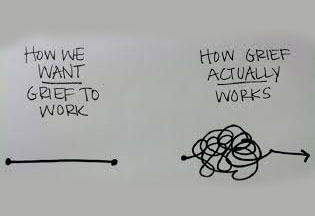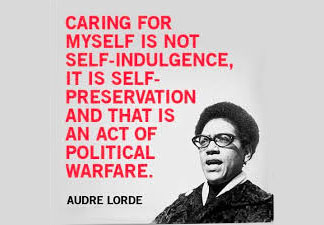Grief Before They’re Gone
It’s become clear to me that it’s time to say a bit about anticipatory grief, that sort of pain we feel when someone we love is dying. This is different from grief we feel when someone is already gone; rather anticipatory grief is what we experience when we’re fully aware that a loved one is mortal, and dying, and that we’ll likely be here without them after they die.
 Anticipatory grief carries with it all the usual emotions of regular grief — including anger, guilt, anxiety, denial, bargaining, and sadness, to name a few — but is complicated because the person is still here, in some form or another. We can’t have the same relationship as before, and acting like everything’s “normal” can be a huge strain. We can’t imagine living without them, but we know things will not get better or easier. We know that dying leads to death, and the anticipation of this can be terrible – worse, even, than the death itself.
Anticipatory grief carries with it all the usual emotions of regular grief — including anger, guilt, anxiety, denial, bargaining, and sadness, to name a few — but is complicated because the person is still here, in some form or another. We can’t have the same relationship as before, and acting like everything’s “normal” can be a huge strain. We can’t imagine living without them, but we know things will not get better or easier. We know that dying leads to death, and the anticipation of this can be terrible – worse, even, than the death itself.
It’s an honor to get to support people who are experiencing grief. These are some of the most difficult, lonely moments that life brings us, and a time for deep reflection about who we are and what’s most important. It’s a privilege to walk with people through the desolate landscape of grief and help them find their way back home to their own precious life.






